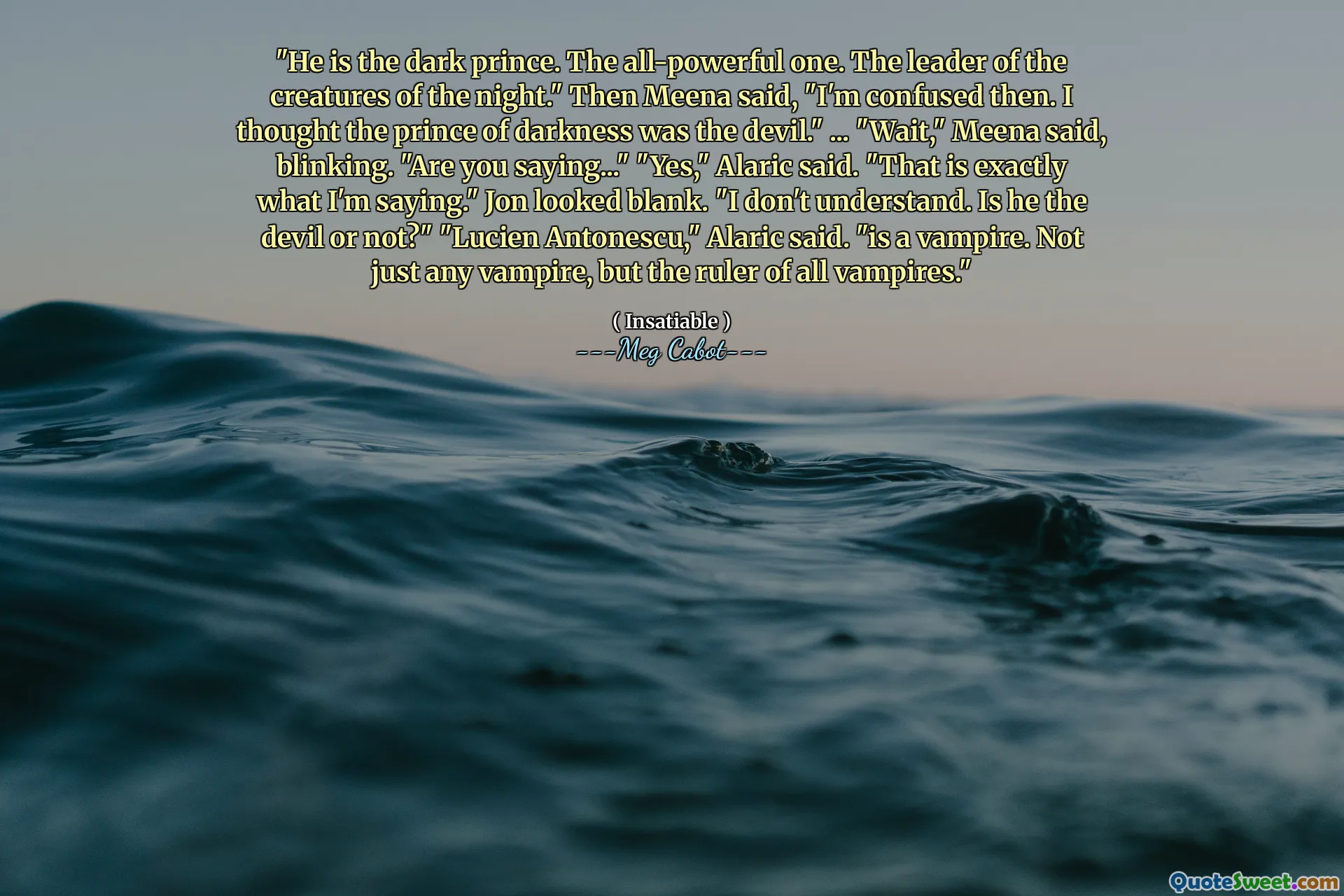
"He is the dark prince. The all-powerful one. The leader of the creatures of the night." Then Meena said, "I'm confused then. I thought the prince of darkness was the devil." ... "Wait," Meena said, blinking. "Are you saying..." "Yes," Alaric said. "That is exactly what I'm saying." Jon looked blank. "I don't understand. Is he the devil or not?" "Lucien Antonescu," Alaric said. "is a vampire. Not just any vampire, but the ruler of all vampires."
This excerpt deftly plays with the archetypal imagery associated with darkness and evil by blending traditional devil mythology with vampire lore. The confusion expressed by Meena is relatable; cultural narratives have long solidified the 'prince of darkness' as the devil, making Alaric's assertion a captivating twist. By revealing Lucien Antonescu as the true 'dark prince'—a vampire leader rather than a demonic figure—the passage invites readers to reconsider entrenched symbols of evil. This blending of mythologies underscores the complexity of villainy and power in literature, showing how figures once thought exclusively as metaphors for pure evil might be reimagined in nuanced, layered ways. Additionally, the discussion between characters highlights the tension between belief, myth, and reality within storytelling, which enriches the narrative depth. The fact that Alaric corrects common assumptions to unveil a different type of darkness shifts the conversation from a simple good-versus-evil dichotomy to something more complex involving power, leadership, and supernatural rulership. It’s a reminder of how genre fiction like vampire stories can challenge conventional mythos, contributing fresh perspectives and making readers question accepted narratives. Overall, the dialogue enhances the mystique around the vampire trope, deepening its role in literature as not just monstrous but sovereign, a nuanced sovereign that commands respect and terror alike.






